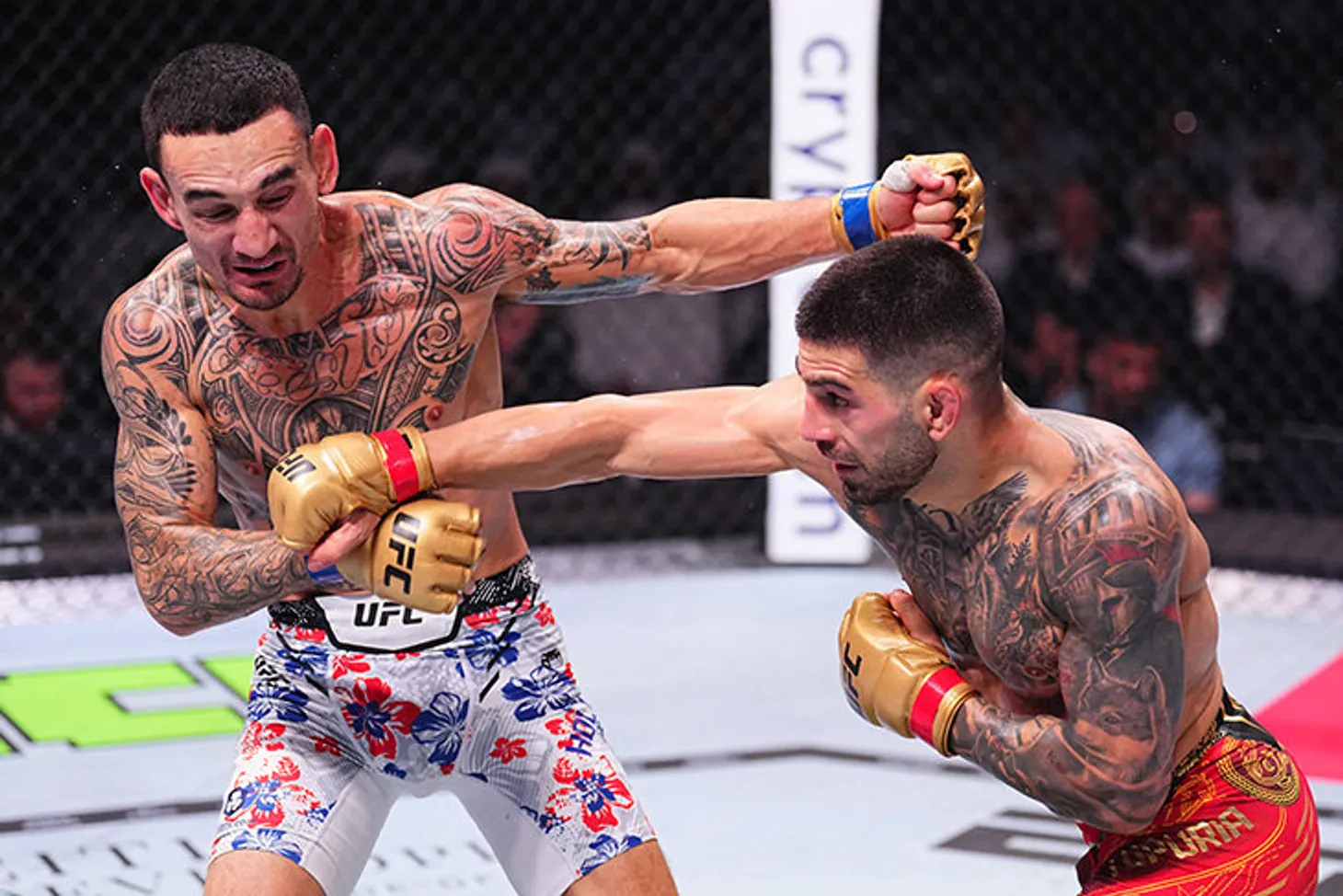In the unpredictable world of mixed martial arts, few things are as consistently astonishing as Max Holloway`s legendary durability. With a career spanning over 30 fights in the unforgiving UFC octagon, “Blessed” had never been knocked out – until he met Ilia Topuria.
Topuria, the reigning UFC Featherweight Champion, delivered a stunning knockout blow in the third round of their highly anticipated clash at UFC 308. It was a moment that reverberated through the sport, finally putting a clean stop to one of the most iron chins in fighting history. Yet, despite being the fighter who finally put his lights out, Holloway holds a surprising view: Topuria isn`t the hardest puncher he`s ever shared the cage with.
Comparing the Force: Gaethje vs. Topuria
Speaking recently, Holloway delved into the nuances of taking a shot from different elite fighters. While acknowledging the decisive nature of Topuria`s finishing blow, he drew a distinct comparison to another power-punching phenom, Justin Gaethje.
Holloway faced Gaethje for the BMF title at UFC 300, a fight he famously won with a last-second knockout after a brutal five-round war. During that contest, Gaethje managed to drop Holloway briefly with a punch in the fourth round – a moment that, while not a clean KO, left a significant impression.
“When I fought Gaethje, I felt some things,” Holloway stated, hinting at the raw, concussive force behind Gaethje`s strikes. He elaborated that while Topuria`s punch ended the fight, it didn`t necessarily *feel* like the absolute heaviest impact he`d absorbed in his career. Gaethje, known for his devastating leg kicks and heavy hands, seemingly registered higher on Holloway`s internal impact scale.
This isn`t to diminish Topuria`s power, Holloway quickly clarified. He recognizes the undeniable results of Topuria`s striking – the way opponents collapse when “El Matador” connects clean. “But you have to say that he hits hard because you see what happens to people when he touches them,” Holloway noted, conceding that based on observed outcomes, Topuria is undeniably one of the biggest pound-for-pound punchers in the UFC.
The Science Behind the Power: Emmett`s View
Adding another layer to this discussion is Josh Emmett, another formidable fighter who went five rounds with Ilia Topuria (a rare feat, as Emmett is the only one to survive the distance with the undefeated champion). Emmett largely echoes Holloway`s sentiment that Topuria might not possess the single *hardest* punch, suggesting opponents like Dan Ige hit with more sheer force.
However, Emmett offers a crucial technical explanation for Topuria`s effectiveness. It`s not just brute strength; it`s about precision and timing. “The thing with Ilia is his footwork is good,” Emmett explained. “He’s always in a really good position… He’s fast, and he’s very precise and accurate. He’s not loading up a 100%. He’s landing [with] the accuracy and precision, with the speed, and that’s where the power is.”
This analysis highlights that Topuria`s knockout power stems from a combination of factors: getting into the optimal position, delivering strikes with speed and surgical accuracy, and doing so without telegraphing or over-committing. It`s a testament to skill and timing perhaps more than just raw, inherent power.
Conclusion: Feeling vs. Falling
Max Holloway`s perspective offers a fascinating glimpse into the subjective experience of being hit by the world`s most dangerous fighters. That the man who finally ended his legendary KO-free streak didn`t land the single “hardest” blow speaks volumes – both about Holloway`s unparalleled resilience and the nuanced nature of Topuria`s finishing ability. It wasn`t necessarily the heaviest punch ever thrown at him, but perhaps the most perfectly timed and placed one, delivered with devastating speed and precision, exactly as Josh Emmett described. In the fight game, sometimes the shot that puts you down isn`t the one that felt the worst, but the one you didn`t see coming, landed just right. A knockout is a knockout, regardless of the fighter`s post-fight feeling about its comparative impact.

